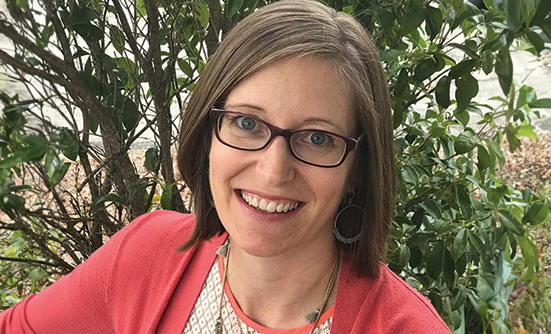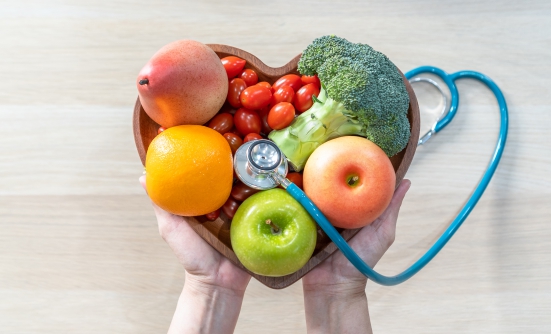
A cancer diagnosis usually prompts people to look for ways to improve their health, minimize treatment side effects, and decrease their risk of recurrence. In this situation, you might find friends, family members, and strangers trying to be helpful by flooding you with information about “miracle cures” and “natural” therapies. You may even find ads popping up in your social media feeds.
Many of these so-called cures or therapies are sold as supplements; some may seem tempting. After all, what harm can be done? You might ask:
- Which ones can you use?
- Do they do what they claim?
- Do these often-costly products really help?
But one question that isn’t often asked is: Can they hurt you?
Before addressing that question, we must define what we’re talking about. For this article, we’ll discuss supplements, not nutraceuticals, because the definition of nutraceuticals is unclear. The US Food & Drug Administration (FDA) does not recognize the term, and online searches can give confusing responses.
So, What Is a Supplement?
The FDA defines supplements as products that contain at least 1 dietary ingredient, such as vitamins, herbs, enzymes, and other nutritional elements. They can be purchased as pills, capsules, liquids, tablets, powders, and even gummies now. Herbal supplements alone are plant-based and can also be purchased as extracts, teas, and powders.
The FDA also says that although supplements are technically drugs, they are not like prescription and over-the-counter (OTC) drugs.1 Supplement manufacturers do not have to submit proof that their product works through clinical trials, only that it is safe to consume. However, a manufacturer may be part of the United States Pharmacopeia Verification Program if they meet all the standards.2,3 That said, all manufacturers must submit reports to the FDA if their products show evidence of problems once they are on the market. The FDA can demand that dangerous products be withdrawn.
Manufacturers must label all the ingredients in the supplement. Still, buyer beware.4 The amount of the actual ingredients can vary among manufacturers, and complete information may be secret because they are proprietary blends.
Most healthy individuals who consume a healthy, well-balanced diet should not typically need a dietary supplement, unless advised by their healthcare provider. Nature’s way of providing nutrition is effective and efficient because you get a balance of necessary vitamins, minerals, enzymes, and other elements, and the food fills you and satisfies your hunger.
Supplements and Cancer Treatment
Cancer and cancer treatments can change nutritional needs. They can challenge how you take in the food and how your body absorbs and uses the nutrients.
The medications used during cancer treatment affect not just the tumors but all the body’s cells. Any medication—prescription, OTC, or supplement—can affect how those medications work and change how your body reacts. In addition to interactions with medications, several supplements are associated with worsening cancer progress rather than helping it. Some increase the risk of certain cancers developing, the risk of cancer recurring, and even mortality. For example, a study published in 2019 in The American Journal of Clinical Nutrition showed that women who took antioxidant supplements while undergoing chemotherapy or radiotherapy had worse outcomes than those who did not.5
Antioxidant supplements are growing in popularity. Advertising tells you they can ward off heart disease, preserve cognitive function, preserve sight, and even prevent cancer. Researchers have found that antioxidants help neutralize, or balance out, free radicals, molecules that can cause damage to the DNA and other parts of the cells in your body. But if you take too many antioxidants, they might be more harmful than helpful. They can end up interfering with the very functions you are trying to enhance.6
Antioxidants are readily available in any healthy diet. For example, you can find antioxidants in:
- Broccoli
- Sweet potatoes
- Almonds
- Avocados
- Eggs
- Brown rice
- And many more.
If you are undergoing cancer treatment, another thing to consider is that the antioxidant effect that helps prevent damage from the free radicals can harm the efforts to treat the disease. For example, some studies have shown that people who had lung cancer and took beta-carotene supplements had an increased risk of death.7
As for other types of supplements, some, such as vitamin K, fish oil, turmeric, feverfew, and even garlic, can increase bleeding risk. This could cause a significant problem if your cancer treatment involves surgery or treatments that could cause bleeding. The length of time the supplements should be avoided before or after treatment varies depending on the oncologist’s or surgeon’s recommendations.
Whole Food Versus Supplement—2 Examples
Vitamin C
The recommended daily amount of vitamin C is 90 mg for men and 75 mg for women (80-85 mg during pregnancy). You could get that in a tablet, or you could get about 70 mg of vitamin C from 1 orange, along with 15% of your dietary fiber for the day, as well as calcium, iron, and potassium.
Magnesium and Manganese
Magnesium and manganese are essential compounds that help your body function. One serving of cashews, about 18 nuts, contains almost 83 mg of magnesium, about a quarter of an adult’s daily requirement of 310 to 420 mg. There’s 0.471 mg of manganese in that serving as well, which is a little less than a quarter of what the average adult body needs every day (between 1.8 and 2.3 mg). But you also get calcium, iron, copper, potassium, and so much more. And they are a tasty snack, too.
Sources
- National Institutes of Health; Office of Dietary Supplements. Vitamin C. Accessed October 20, 2023. https://ods.od.nih.gov/factsheets/VitaminC-Consumer/
- National Institutes of Health; Office of Dietary Supplements. Magnesium. Accessed October 20, 2023. https://ods.od.nih.gov/factsheets/Magnesium-HealthProfessional/
- National Institutes of Health; Office of Dietary Supplements. Manganese. Accessed October 20, 2023. https://ods.od.nih.gov/factsheets/Manganese-Consumer/
- National Institutes of Health; Office of Dietary Supplements. Orange Nutrition Facts. Accessed October 20, 2023. https://ods.od.nih.gov/factsheets/VitaminC-Consumer/
- US Department of Agriculture; Agricultural Research Service. Nuts, cashew nuts, raw. Accessed October 22, 2023. https://fdc.nal.usda.gov/fdc-app.html#/food-details/170162/nutrients
- US Food and Drug Administration. Questions and Answers on Dietary Supplements. Accessed October 20, 2023. www.fda.gov/food/information-consumers-using-dietary-supplements/questions-and-answers-dietary-supplements
Sometimes Supplements Are Necessary
Other cancer treatments, such as radiation and surgery, can impact your ability to take in and absorb nutrients. Supplements can help in this setting, but check with your oncologist and cancer center dietitian to determine which are best and safest for you.
Supplements have a place in other situations, too. For example, if you are a strict vegetarian or vegan, you may need vitamin B12 supplements; if you are experiencing extreme diarrhea, your oncologist may recommend probiotics. But even this should be done with caution. A study published in 2021 showed that some patients with acute myeloid leukemia had more infections if they took probiotics than the patients who did not.8 An increased risk of infections leads to an increased risk of sepsis, a frequently fatal condition.
Muscle mass loss can be a big problem for many people with cancer and can lead to other problems. When this happens, sometimes one solution is increasing protein through protein powders, specifically whey protein.9 These are preferred over the popular liquid supplements, which may contain corn syrup, vegetable oil, salt, and other unnecessary ingredients. Some powders also include high levels of sugar and calories, so it is essential to check the labels. Side effects can include gas, bloating, and diarrhea. Also, people who are lactose intolerant may have to avoid certain whey-containing powders.
Certain types of cancer and their treatments can weaken bones, causing osteoporosis. To counter this, your oncologist could recommend you take calcium, vitamin D, and magnesium.
The important thing is that your oncologist must know what supplements you are taking, and how much. Also, be aware that even supplements can cause side effects. For example, calcium supplements can cause constipation and kidney stones. Taking the supplements with water and continuing to hydrate throughout the day could help lower the risks of these side effects.
Buying Supplements
The number of supplements on the drugstore shelves or available online can be overwhelming. If you are purchasing supplements based on your oncologist’s recommendations, you must research the different brands if the dietitian has not suggested any. As mentioned above, the FDA does not regulate supplements. Some multivitamins have a coating that some people may react to, for example. Some coatings have dyes or other ingredients that could make people nauseous, while others may contain gluten, which people with celiac disease must avoid. It is not unusual for someone to experience nausea or diarrhea from one supplement brand but not another. Some online sites can help with this research, such as the subscription-based site ConsumerLab.com.
Like most cancer centers have dietitians on staff, most also have pharmacists. They are the go-to people for medication questions, and they can probably guide you to the best supplements. There may be different formulations of a particular supplement, depending on why you need it, for example. At the same time, they can advise you if there are any interactions between your medications and the supplements, and when the best time of day is to take them—morning, night, on an empty stomach?
Meeting With the Dietician
If you are struggling with your diet, ask to meet with your cancer center’s dietitian. To help the dietitian understand your needs better, here are some of the questions you might be asked:
- Do you have any food restrictions because of personal or religious beliefs?
- Do you have any food allergies or intolerances?
- Do you have any intense dislikes regarding food?
- Do you drink alcohol, and if so, how much?
- Do you smoke?
- Are you able to prepare meals or have someone to help you?
- Can you afford the food you need?
Replace the Supplement Habit
If you have been taking supplements for a long time and believe they help to make you healthier, you might be disconcerted if told you should not take them while receiving cancer treatment. If this is the case, it is important to understand that no one suggests you never take it again—just that you might have to take a break during this period if your oncologist suggests it.
If you are concerned about how you might feel without them, there are other options. You could meet with a dietitian to see where you might add things to your diet or make some changes. For example, the Mediterranean diet is known for its healthy foods. It is sustainable over the long term and has proved benefits. The plant-based diet includes foods naturally high in fiber and uses healthy fats. Meals are simple, mainly prepared with olive oil and without the fats associated with sauces and gravies. The diet includes small portions of lean meat, chicken, and seafood. The meals are big on whole grains, fresh fruits and vegetables, as well as nuts and legumes.
This is also a good time to explore other well-being habits. While they are not directly related to eating, they can help your body feel better and stronger, giving you the boost you need. Some habits could include:
- Journaling
- Meditation
- Mindfulness
- Yoga
- Exercise
- Smoking cessation
- And more.
The Final Word
With all the hype about supplements, it can be confusing to sort out what is best for you, especially if you have cancer. But what is not confusing is that the medical literature repeatedly shows a whole food, plant-based diet has the strongest evidence for cancer prevention, lowering the risk of recurrence, and managing most other chronic diseases, such as hypertension, type 2 diabetes, and even depression. If you do experience challenges supporting your nutritional needs during your treatment, there can be a role for supplements. Given how powerful their actions can be, work with your cancer care team to optimize your personal nutrition plan to ensure you are enhancing your treatment and recovery.
References
- US Food and Drug Administration. FDA 101: Dietary Supplements. Accessed October 20, 2023. www.fda.gov/consumers/consumer-updates/fda-101-dietary-supplements
- United States Pharmacopeia. USP Dietary Supplement Verification Program. May 10, 2018. Accessed October 20, 2023. www.usp.org/sites/default/files/usp/document/our-work/DS/dsvp-manual-participants.pdf
- United States Pharmacopeia. USP Verified Mark. Accessed October 20, 2023. www.usp.org/verification-services/verified-mark
- Bernstein IBG, Bolte KL. Is my patient taking an unsafe dietary supplement? AMA J Ethics. 2022;24:E390-E395.
- Jung AY, Cai X, Thoene K, et al. Antioxidant supplementation and breast cancer prognosis in postmenopausal women undergoing chemotherapy and radiation therapy. Am J Clin Nutr. 2019;109:69-78.
- National Institutes of Health; National Center for Complementary and Integrative Health. Antioxidant Supplements: What You Need To Know. Accessed October 20, 2023. www.nccih.nih.gov/health/antioxidant-supplements-what-you-need-to-know
- Corbi G, Ali S, Intrieri M, et al. Association between beta-carotene supplementation and mortality: a systematic review and meta-analysis of randomized controlled trials. Frontiers in Medicine. https://doi.org/10.3389/fmed.2022.872310
- Lu K, Dong S, Wu X, et al. Probiotics in cancer. Front Oncol. 2021:11: 638148.
- Cereda E, Turri A, Klersy C, et al. Whey protein isolate supplementation improves body composition, muscle strength, and treatment tolerance in malnourished advanced cancer patients undergoing chemotherapy. Cancer Med. 2019;8:6923-6932.
About the Author
Lauri has 25+ years of clinical experience, most recently serving as the medical director of the University of New Mexico’s Integrative Medicine Clinic since 2020. She graduated from Duke University’s Leadership in Integrative Medicine Program and is a board-certified general surgeon in rural Colorado, practicing in multicultural settings. She is involved with the Academic Consortium of Integrative Medicine and Health’s research partner, the BraveNet Collaborative.

About Viver Health (viverhealth.com)
Viver’s Mission is Total Patient Care. Viver develops solutions that blend evidence-based clinical and holistic interventions to improve patient experiences and health outcomes. Our integrative resources address all aspects of a patient’s health, including symptom management, nutrition, and lifestyle guidance.











